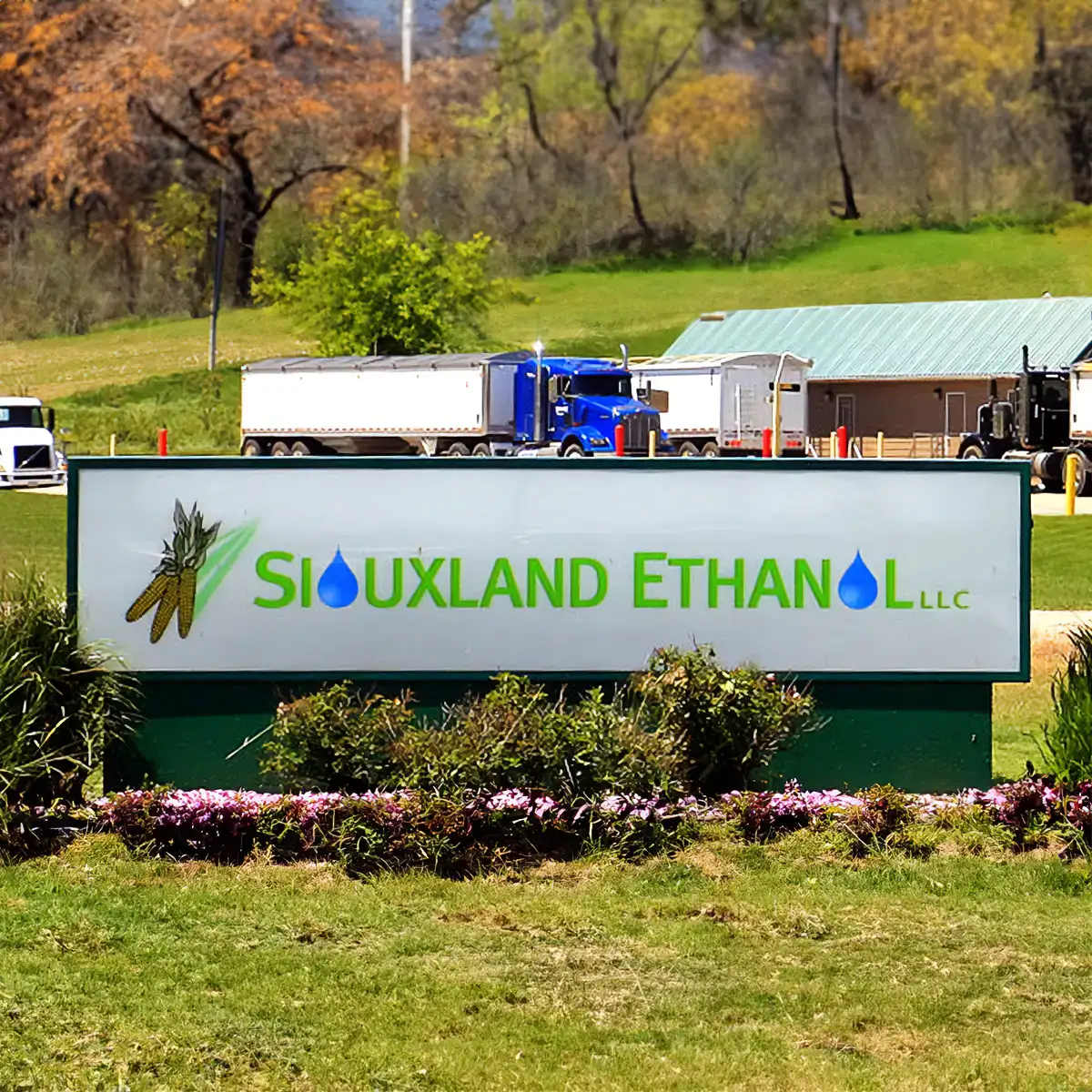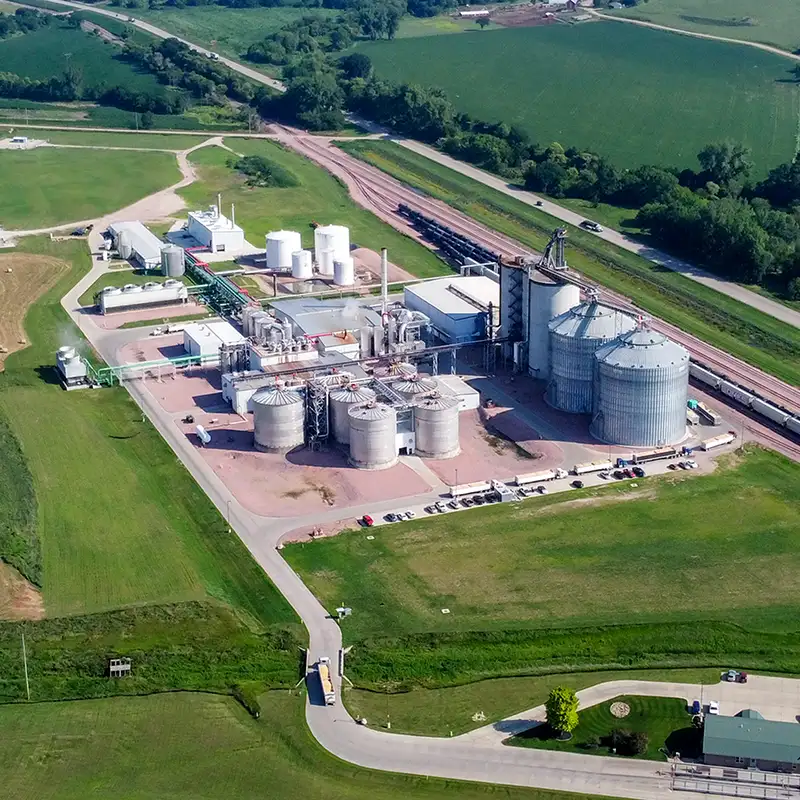Siouxland Ethanol’s history started with a simple question—what if? What if local people could harness the resources already available in northeast Nebraska to spur rural economic development in new, innovative ways?
In 2003, local leaders established the Dakota County Economic Development Committee, which was the impetus for Siouxland Ethanol, LLC. Project leaders contacted seed investors, who contributed $1 million to fund a feasibility study and corn origination study. The committee knew the area’s strong transportation system (including rail and hard-surface roads), reliable and cost-effective utilities, groundwater and discharge water sources, and abundant corn available in and around Dakota County could contribute to a successful ethanol plant.
Siouxland Ethanol was formed as a limited liability company in Nebraska in August 2004. An equity drive to raise $36 million launched on Aug. 18, 2005, the same day President George W. Bush signed the first Renewable Fuels Standard legislation. Project leaders planned to host 50 informational meetings in the area to encourage people to invest in the new plant.


The public’s response was tremendous. Not only was there standing-room-only at the informational meetings, but Siouxland Ethanol reached its equity drive goal on Aug. 26, 2005, after the first eight meetings were held. The remaining informational meetings were cancelled after local farmers, business professionals and people from all walks of life invested in the northeast Nebraska ethanol plant.
“It was a fun time,” recalled Pam Miller, a local economic development leader and Siouxland Ethanol’s chair. “The whole concept of homegrown fuel was popular, and other ethanol plants in the area had done well financially, which generated interest in Siouxland Ethanol.”
In addition to the equity drive, Siouxland Ethanol also used several economic development incentives from the State of Nebraska, as well as a Community Development Block Grant and a TIF district established by the Village of Jackson, to finance the plant.
The Siouxland Ethanol plant was built in a former cornfield near Jackson by Fagen, Inc., utilizing modern ICM Technology. Designed to produce 50 million gallons of ethanol each year, Siouxland Ethanol became operational May 2007.
The plant consumes 30 million bushels of corn each year to produce a clean-burning, high-octane gasoline additive. This corn is purchased from our local farmers and elevators and the dollars turn over in our local communities.
From the beginning, Siouxland Ethanol has used methane gas obtained from the nearby L.P. Gill landfill to help power the plant. Methane gas is priced at a discount to natural gas, which not only gives the plant an ongoing operational cost advantage, but puts new meaning into the term “renewable fuel.”
Methane gas displaces nearly 10% of Siouxland Ethanol’s natural gas needs and boosts the plant’s carbon-intensity score. This gives ethanol from Siouxland Ethanol a premium value in the California market and other markets that are working to lower their carbon footprint.
Siouxland Ethanol is led by a board of 11 directors who serve three-year terms and are elected by Siouxland Ethanol’s investors. Many of these board members have been with Siouxland Ethanol from the start.
Siouxland Ethanol continues to meet and exceed our founders’ initial goals, which included:
From the beginning, “Can we do it?” has been the guiding question at Siouxland Ethanol. The answer has always been yes, and it remains yes as Siouxland Ethanol continues to thrive.